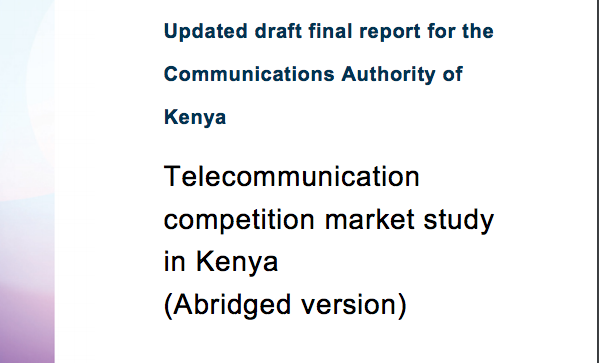The telco sector competition remedies proposed to the Communications Authority of Kenya (CA) will stifle innovation, neglect customer needs, and increase call prices.
The Customers’ Needs Will No Longer Be Prioritised
Telcos thrive on anticipating their customers’ needs in order to offer tailored products and services. So when the Analysys Mason’s recent report proposes regulating promotions and doing away with individually tailored loyalty schemes and promotions, it appears that the customers’ needs will no longer be prioritised.
“Safaricom may not offer loyalty bonuses or promotions for which the qualification criteria require different levels of expenditure or usage by different subscribers in the same category,” the report states.
Therefore, by removing the focus from the customer, innovation decreases. Innovation is defined as the process of bringing to customers new products, new services, and new processes. That means when regulation creates a level playing field for all players, they will become lax and less inclined to innovate more.
For instance, one of the recommendations wants Safaricom to make its sites available to other Tier 1 mobile operators in specific counties. However, through tower-sharing, other mobile operators will simply not be motivated to innovate as far as towers are concerned because they will be relying on Safaricom’s efforts.
Increased Call Prices
By regulating the telecommunications sector, call prices are likely to increase which will eventually hurt the common man’s pocket. Again, increased call prices simply illustrate the anti-customer nature of the proposed regulations.
The Communications Authority of Kenya has the power to promote competition. However, as it goes about carry its role, the regulator should carry out an analysis of every proposed recommendation to determine its impact on innovation and the customer.
RELATED; A Brief Look into Kenya’s Telecom Competition Market Study Report




